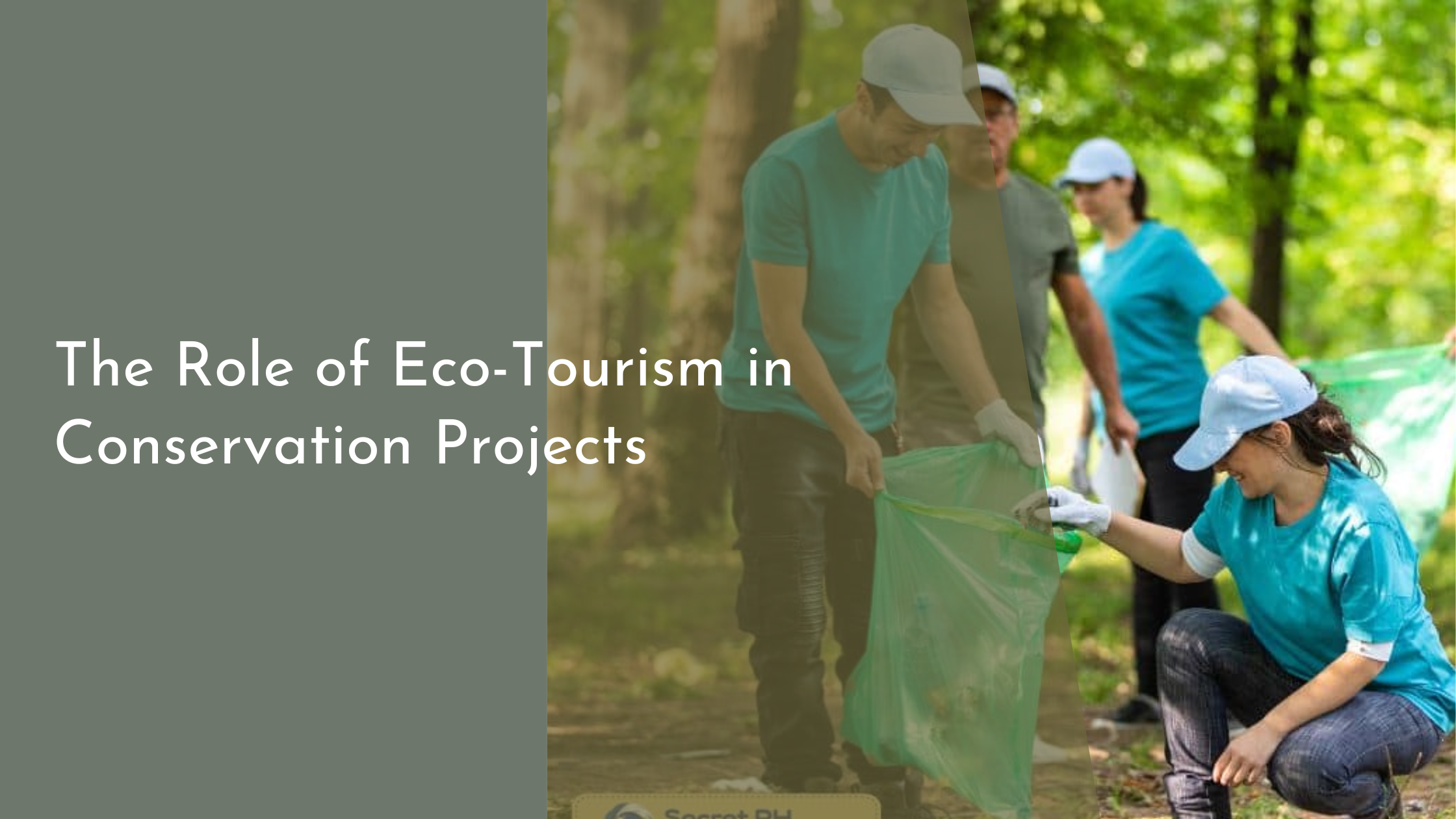The Role of Eco-Tourism in Conservation Projects
Eco-tourism has emerged as a pivotal player in the efforts to conserve our planet’s most precious ecosystems. As travelers become more environmentally conscious, they increasingly seek experiences that allow them to appreciate nature without contributing to its degradation. This shift has led to a symbiotic relationship between tourism and conservation, where eco-tourism not only educates and inspires visitors but also directly supports conservation projects financially and logistically. In this article, we delve into the multifaceted role of eco-tourism in conservation, illustrating its benefits, how it aligns with conservation goals, and highlighting successful projects that have been driven by this sustainable approach. We’ll also explore the promising future that eco-tourism holds in continuing to bolster conservation efforts worldwide.
Understanding Eco-Tourism and Its Benefits
Eco-tourism refers to a form of travel that prioritizes ecological sustainability, conservation, and the well-being of local communities. It is an approach that allows tourists to explore natural environments while minimizing their impact. By emphasizing education and awareness, eco-tourism encourages travelers to develop a deeper understanding of the environment and cultural heritage, fostering a sense of responsibility towards preserving it. Benefits abound, including reduced carbon footprints when compared to traditional tourism and the promotion of sustainable practices.
Aside from environmental advantages, eco-tourism confers economic benefits as well. It provides an alternative source of income for local communities, which might otherwise rely on activities harmful to the environment, such as logging or poaching. By generating revenue through tourism, local populations can be incentivized to protect their natural resources. Moreover, eco-tourism often involves hiring locals as guides, educators, or conservation workers, thereby directly contributing to the socio-economic development of host communities. This dual benefit of ecological preservation coupled with community empowerment makes eco-tourism a valuable tool in global conservation efforts.
How Eco-Tourism Supports Conservation Goals
Eco-tourism supports conservation goals by directly funding conservation projects and initiatives. Entrance fees, tour costs, and voluntary donations from eco-tourists often go towards the maintenance and protection of natural parks, wildlife sanctuaries, and endangered species habitats. This financial support is crucial for conducting research, implementing conservation strategies, and maintaining the infrastructures needed to protect these ecosystems. With consistent funding, conservation projects can achieve long-term success in safeguarding biodiversity and mitigating environmental degradation.
Moreover, eco-tourism raises awareness among travelers about the pressing environmental issues facing our planet, instilling a sense of environmental stewardship. By offering immersive experiences, eco-tourism educates visitors on the importance of preserving natural habitats and the threats posed by climate change and human activities. This educational component is vital for fostering a global culture of conservation and inspiring individuals to take action in their own lives to support environmental sustainability. Ultimately, eco-tourism acts as a powerful catalyst in aligning public interest with conservation efforts, promoting a shared commitment to protecting our planet.
Successful Conservation Projects Driven by Eco-TourismSet featured image
The Galápagos Islands serve as a prime example of a successful conservation project fueled by eco-tourism. Recognized as a UNESCO World Heritage Site, the Galápagos’ unique biodiversity attracts eco-tourists from around the world. The revenue generated from eco-tourism supports the Galápagos National Park, which plays a critical role in preserving the islands’ ecosystems and endemic species. This funding aids in enforcing regulations that limit human impact, conducting scientific research, and implementing conservation initiatives like restoration programs for endangered species.
Similarly, the Maasai Mara National Reserve in Kenya showcases how eco-tourism can drive successful conservation projects. Through partnerships with local Maasai communities, eco-tourism initiatives have facilitated the establishment of wildlife conservancies that protect critical habitats for a myriad of species, including the iconic African elephants and lions. The economic benefits derived from eco-tourism have enabled these communities to invest in conservation infrastructure and sustainable practices, such as anti-poaching patrols and habitat restoration projects. This collaboration between eco-tourism and local stakeholders has contributed significantly to the preservation of the Maasai Mara’s rich biodiversity.
The Bright Future of Eco-Tourism in Conservation
The future of eco-tourism in conservation looks promising, as global awareness of environmental issues continues to grow. With an increasing number of travelers seeking eco-friendly travel options, the demand for eco-tourism experiences is expected to rise. This trend paves the way for expanding conservation efforts, as more destinations adopt sustainable tourism practices. Innovations in eco-friendly accommodations, carbon-neutral travel options, and immersive educational experiences are likely to become more prevalent, enhancing the positive impact of eco-tourism on conservation.
Governments and private sectors are also recognizing the potential of eco-tourism as a tool for achieving conservation and development goals. By investing in eco-tourism infrastructure and policies, they can create a supportive environment for sustainable tourism initiatives to thrive. This collaboration between public and private sectors promises to bolster conservation projects on a larger scale, ensuring that eco-tourism continues to serve as a vital component in the global effort to protect our planet’s natural heritage.
Eco-tourism stands at the forefront of a growing movement towards sustainable and responsible travel. By intertwining tourism with conservation, it offers a unique opportunity to protect the planet while empowering local communities. As more people embrace the principles of eco-tourism, its role in conservation projects is set to become even more significant. Eco-tourism not only helps preserve our environment for future generations but also reshapes the way we interact with nature, encouraging a more mindful and proactive approach to conservation. The journey towards a sustainable future is one that requires collective effort, and eco-tourism is undoubtedly a powerful stride in the right direction.

